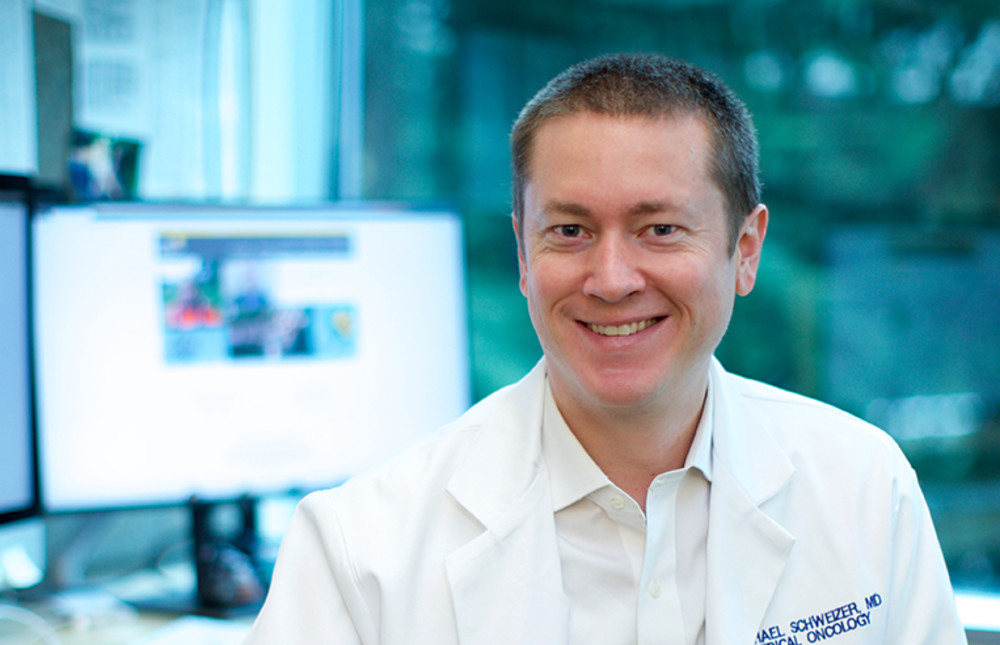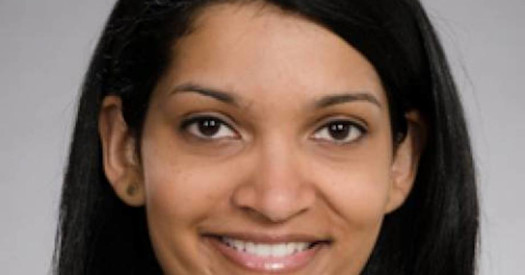
Researchers from the Brotman Baty Institute for Precision Medicine (BBI) in Seattle have developed a test that can identify the mutations that drive prostate cancers from tumor DNA found floating freely in the bloodstream of patients with advanced forms of the disease. Information about such “driver mutations” can be used to custom design cancer treatments that target the unique characteristics of an individual patient’s tumor, an approach called precision medicine. Currently, the most common way to obtain tumor DNA for gene sequencing is by obtaining tissue from the tumor with a biopsy. But biopsy procedures can cause pain and carry the risk of complications such as bleeding and infection. Lead author Michael Schweizer, MD, assistant professor in the UW Department of Medicine’s Division of Medical Oncology and the Fred Hutchinson Cancer Research Center, said that the test was able to detect the genetic variations seen in tumor tissue obtained by biopsy. “We feel confident that it’s a reliable assay for patients with advanced prostate cancer and could be used help select patients who will respond best to specific treatments,” Schweizer said. In their new study, the BBI researchers wanted to see if a gene sequencing platform developed at the University of Washington to sequence DNA from tumor tissue, called UW-OncoPlex, could be adapted to sequence the much smaller amounts of tumor DNA that can be found floating freely in plasma, the portion of blood that remains after the red, white and other blood cells are removed. In the new study, reported in the journal The Prostate, BBI researchers from the University of Washington School of Medicine and the Fred Hutchinson Cancer Research, analyzed blood obtained by a simple blood draw to see if they could obtain enough DNA from the tumor to analyze. Both normal and cancerous cells continuously shed small amounts of such “cell-free DNA” into the bloodstream.
To the evaluate the approach, the BBI team sequenced cell-free DNA from the blood from 93 patients with prostate cancer. For comparison, the researchers also sequenced DNA from the patients’ tumors and from normal tissue, circulating white cells, that was not affected by the cancer. The researchers found they were able to detect mutations known to be associated with prostate cancer in the cell-free DNA of 34 of these patients. These patients tended to have more advanced disease, with high levels a prostate cancer marker called prostate specific antigen (PSA), high tumor volume and a more intractable form of the disease called castration-resistant prostate cancer. “The challenge of using cell-free DNA is that there’s not very much of it,” said Dr. Colin Pritchard, MD, PhD, associate professor of genetics at UWSOM, director of the UW Medicine Genetics and Solid. “It’s not surprising that patients with a higher burden of cancer would have more cell-free cancer DNA present in their plasma.” It was important to determine which patients were likely to have sufficient cell-free DNA to analyze, said Schweizer, so that doctors treating prostate cancer will know for which patients this test would be appropriate and which should have a standard biopsy instead. The cell-free DNA assay proved to be quite sensitive, detecting 93 of the 102 mutations identified in the patients’ tumor tissue samples. The assay was also able to detect 12 mutations in the patients’ normal tissue that were associated with increased prostate cancer risk. [Is this correct?] Overall, in patients 33 patients with high PSAs—10 ng/mL–the assay was able to detect the tumor mutations in the cell-free DNA in 30 (93%). Pritchard, who developed UW-OncoPlex, noted that there are commercially available assays that can identify tumor driver genes from cell-free DNA. But these are what are called “ultra-deep” sequencing assays that may “read” the DNA as many as 8,000 times. As a result, they are too time-consuming and expensive to be practical for everyday practice. In contrast, the UW-OncoPlex was shown to be able to identify the relevant tumor gene variations with a faster and much more cost-effective 1,000 reads. The less intensive approach also made it less likely that mutations from other tissues unrelated to the cancer might be detected, confusing the results, Pritchard said. “UW-OncoPlex now been has been shown to be able to identify driver mutations in fresh tumor tissue, tissue fixed in formalin and embedded in paraffin, and in whole blood from patients with blood cancers such as acute myelogenous leukemia,” Dr. Pritchard said. “We’ve now validated it for cell-free DNA in these types of patients.” Ultimately, the BBI team hopes to develop cell-free DNA assays that are more sensitive and can be used for a wider variety of tumor types, Pritchard said.
Reference: Schweizer MT, Gulati R, Beightol M, Konnick EQ, Cheng HH, Klemfuss N, De Sarkar N, Yu EY, Montgomery RB, Nelson PS, Pritchard CC. Clinical determinants for successful circulating tumor DNA analysis in prostate cancer. Prostate. 2019 May;79(7):701-708.
Funding: This research was supported by the UW/FHCRC Institute for Prostate Cancer Research (IPCR); FHCRC Solid Tumor Translational Research Program; National Cancer Institute grants P30 CA015704, R50 CA221836 (RG) and R01 CA181605 (PSN); the Pacific Northwest Prostate Cancer SPORE CA097186; Prostate Cancer Foundation Young Investigator Awards (CCP, HHC, MTS); CDMRP Awards W81XWH-16-1-0484 (MTS), PC170510 and PC170503P2 (CCP), W81XWH-17-1-0380 (NDS) and W81XWH-15-1-0430 (PSN).
About BBI: The Brotman Baty Institute for Precision Medicine provides collaborative platforms where researchers from UW Medicine, Fred Hutchinson Cancer Research Center and Seattle Children’s can work together to improve patients’ lives through the development and application of precision approaches to health care. It was founded in 2017 with the generous support of Jeffrey H. and Susan Brotman, and Daniel R. and Pamela L. Baty.


